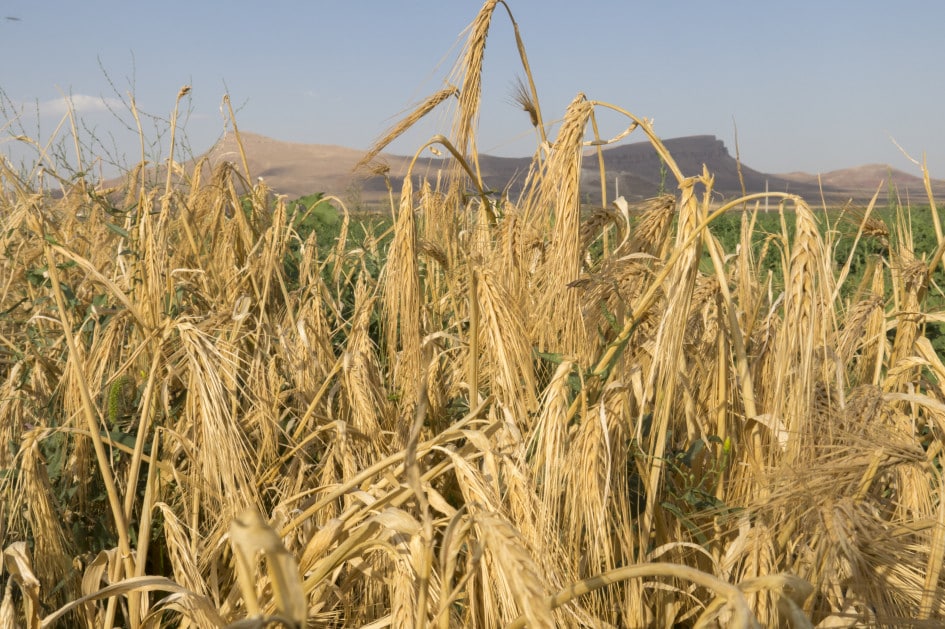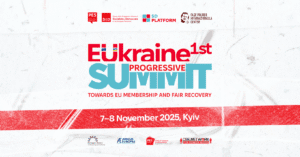Wheat field, 2017 (Source: Wikimedia)
Optimism has been dampened shortly after an UN-approved grain deal between Ukraine and Russia was signed on July 22. The deal brokered by Turkish President Recep Tayyip Erdoğan was to be an important step towards easing the global food crisis. Only a day later, Western leaders cried foul as Ukraine’s main wheat export hub was hit by Russian missiles. It came together with Russia announcing its EU gas exports would be lowered, something European leaders feared.
Turkey acts as mediator and ‘saviour’ of the Middle-East
Given the warm relations that President Erdoğan had previously enjoyed with Russian President Vladimir Putin, as well as Turkish NATO membership and Black Sea naval presence, Turkey was the perfect candidate to host negotiations between Ukrainian and Russian delegates. Erdoğan succeeded in an UN-accord being signed between the parties, of which the implementation Turkey would oversee.
As Ukraine and Russia are amongst the world’s largest wheat producers, grain prices responded to the agreement immediately. Especially Middle-Eastern countries were pleased to hear the news, being heavily dependent on grain imports from Eastern Europe. Some countries like Tunisia import up to 70 percent from the region, whereas Egypt is the region’s largest buyer in absolute numbers.
Wheat exports have declined heavily due to the ongoing war, troubling the Middle-East. This is only exacerbating already existent political tensions in countries like Lebanon and Tunisia, whilst it forced Egypt to look for alternatives to wheat. The country is exploring ways to use potato-wheat in bread-baking and needing to import more expensive wheat from other countries, like India.
Given all of the above, Turkey has been doing Middle-Eastern countries a favour by mediating between Ukraine and Russia. The world should be thankful for sure, but perhaps we need not to forget that behind Egypt, Turkey itself is the largest buyer of Ukrainian and Russian wheat.
Grain prices hike-up again after Odessa bombing
Only a single day after the grain accords the world was “back to square one”, as grain prices hiked-up to pre-agreement levels after the Odessa bombings. The city is Ukraine’s only major deep-water port from which shipments of grain could enter the world market. Local authorities declared that port infrastructure was hit by Russian missiles. After failing to respond for a day, Russia’s Foreign Ministry claimed only military targets were hit.
Regardless of who is correct, the fact that Russia would attack Ukraine’s main grain export hub a single day after the “breakthrough” agreement, does not give the impression there is much to gain from dialogue with Putin. Ukrainian president Volodymyr Zelensky spoke of “barbarism”.
Optimism further decreased over Russian gas reductions
The uncertainty about the freshly signed grain deal overlapped with fears within the EU that Russian gas-exports through the Nord-stream 1 pipeline would halt over “technical issues”. The gas flow was temporarily put to a stop due to planned maintenance work. However, European leaders were sceptical that the pipeline would not be put into use after that planned 10-day shutdown period.
At first the liquid gas flow through the Nord-stream 1 pipeline, that directly runs from Russia to Germany under the Baltic Sea, seemed to get back to ‘normal’ post-invasion levels. However, this positive news was quickly overurned by Russia announcing that the export of gas would be reduced to 30 percent of the total capacity. Before the shutdown 40 percent of the capacity was in use.
President of the European Commission Ursula von der Leyen had already warned that Europe would need to prepare for Russian exports of liquid gas to Europe being cancelled completely. This paved the way towards an 26 July agreement amongst EU countries to all reduce gas consumption by 15 percent. This commitment is a voluntary one for member states, but could become mandatory if gas shortages would occur over the winter.
The current tit-for-tat economic war that has erupted between Russia and the West is far from over. Europe needs to prepare for this, not only in terms of resources, but also by realizing the current skyrocketing energy prices are only one of the many consequences of the war. There will be many more hurdles to overcome given the unstable global economy situation as a result of the war.
Sources: Aljazeera1, Aljazeera2, Euronews1, Euronews2, Reuters1, Reuters2, Reuters3
Photo: Wikimedia



